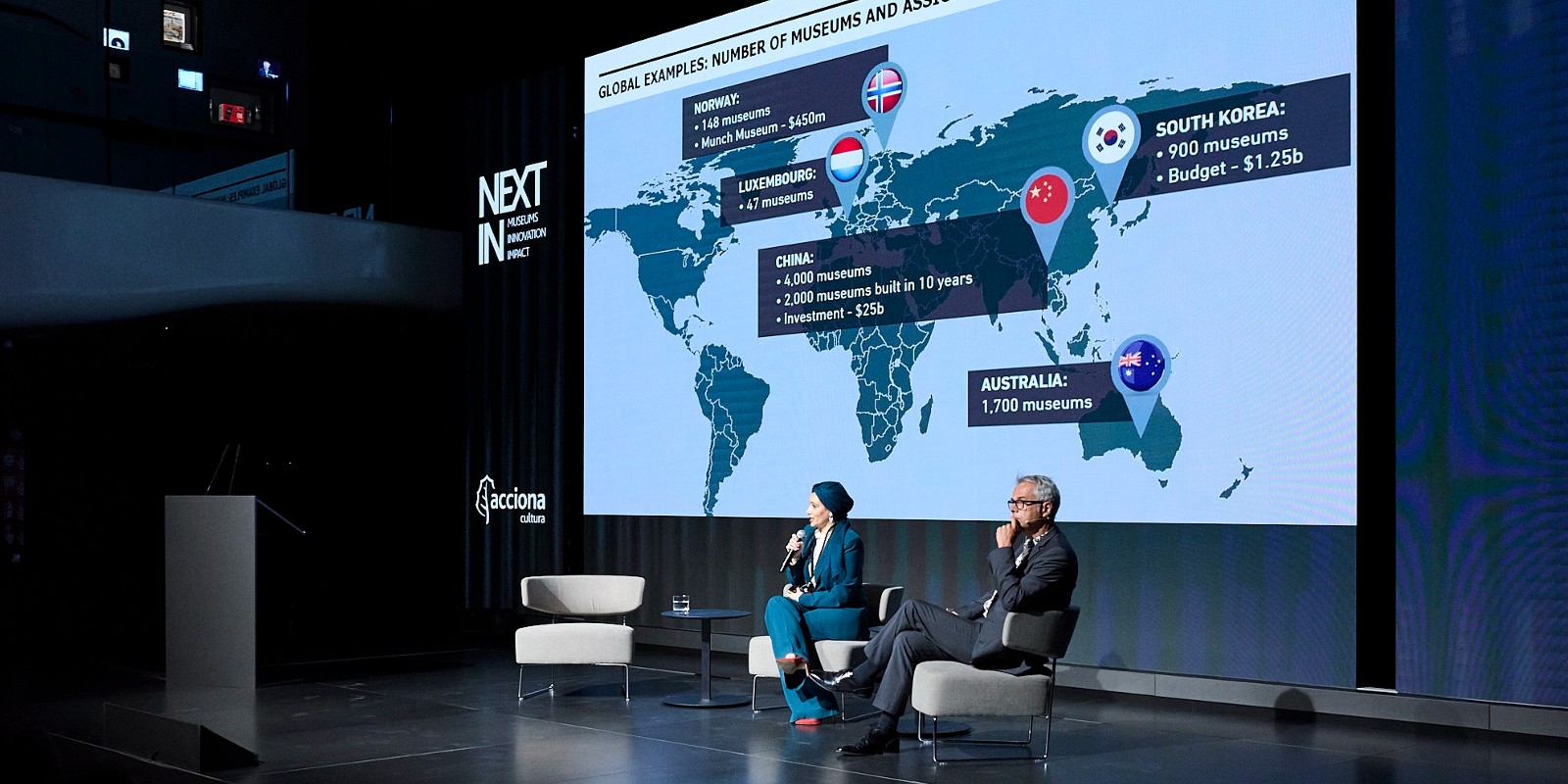- Inaugural event: The summit, organised by ACCIONA Cultura, brings together museum directors, architects, artists, and experts
- Impact: José Manuel Entrecanales, president and CEO of ACCIONA, opens the conference by highlighting the role of culture in building a more sustainable and prosperous society
- Expertise: Artists such as Refik Anadol and architects like Frida Escobedo and Tatiana Bilbao emphasise the impact of creativity and innovation on cultural dynamism

Museum directors, architects, artists, and multidisciplinary experts – gathered in Madrid for the celebration of the first NEXT In Summit, which concludes today – have championed the role of the museology sector as a driver of culture, economic growth, and sustainable development.
During Wednesday's opening session, Sheika Reem al Thani, acting deputy CEO for Exhibitions at Qatar Museums, explained how the development of a national museum network in her country was "contributing to job creation in new sectors of activity and economic growth." In her presentation, she stated that Qatar is experiencing a moment of "touristic and cultural boom that is part of the Qatar National Vision 2030 strategy."
The first NEXT In Summit was inaugurated by José Manuel Entrecanales, president and CEO of ACCIONA, who highlighted the role of culture in general, and museology in particular, as a "fundamental pillar of human development" and as a "vehicle to make society more sustainable, prosperous, balanced, resilient, and empathetic." ACCIONA's president cited French writer André Malraux, affirming that "culture makes man more than an accident of the universe."
Over the two days of the event, representatives from the world's leading museums – including the Prado National Museum, Musées d'Orsay et de l'Orangerie-Valéry Giscard d'Estaing, the Victoria and Albert Museum, and the Louvre Abu Dhabi, among others – reviewed the role of their respective institutions in local society and culture, and shared success stories from both their permanent collections and temporary exhibitions, whose dynamic role in the museum industry was asserted by various participants in the roundtable discussions. "Temporary exhibitions are one of the main assets for museum dynamism and audience attraction," said Christian Wacker, museum manager, archaeologist, and historian.
Architecture, as an essential element in cultural identity, was also a topic of discussion. Frida Escobedo, director of Taller Frida Escobedo in Mexico, highlighted "the role of museums as inclusive and equitable spaces in cities."
On the other hand, Mexican architect Tatiana Bilbao explained that for her, "rather than just form, the key is the combination of what happens inside and outside the buildings; that has been a fundamental change, transforming architecture into a collective act."
Michael Kimmelman, writer and architecture critic for The New York Times, who moderated several roundtable discussions on the topic, summarized: "with architecture [in cultural environments], we are creating something that will be used, occupied, and take on a life of its own. Its goal is to inspire, but also to allow evolution. Architecture must be an act of generosity towards future generations."
Turkish artist Refik Anadol, a pioneer in the use of Artificial Intelligence (AI) for the creation of large-scale immersive art, was responsible for analyzing the relationship between art and innovation in a lecture titled "Can machines dream of art?"
INAUGURAL EVENT
The NEXT In Summit was organized by ACCIONA Cultura, an interdisciplinary company specializing in the design and production of events, museums, exhibitions, expo pavilions, and interiors. With a track record of projects in 43 countries, it boasts 250 international awards.
The museums in which it has participated include the Grand Egyptian Museum, the largest in the world in its category, the House of European History in Brussels, and the Olympic and Sports Museum of Qatar, among others.
Since 1990, ACCIONA Cultura has developed sustainable solutions in museums and art centers, as well as international and universal exhibitions, where it showcases its creative uniqueness and innovative capacity throughout the value chain.
The company holds the ISO 20121 certificate, guaranteeing that all processes in its projects are carried out based on sustainability criteria and that all its activity is carbon neutral.